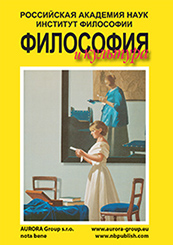Диалог культур
Правильная ссылка на статью:
Ван Ц. Основные особенности культуры политических взаимоотношений СССР и КНР // Философия и культура. 2024. № 5. С. 51-58. DOI: 10.7256/2454-0757.2024.5.70861 EDN: EIVDMH URL: https://nbpublish.com/library_read_article.php?id=70861
Читать статью
Результаты процедуры рецензирования статьи:
|
EDN: EIVDMH

|
Аннотация:
Основным предметом исследования является сравнительный анализ культур политических взаимоотношений Советского Союза (СССР) и Китайской Народной Республики (КНР) в середине двадцатого века. Автор подробно рассматривает такие аспекты темы, как идеологизация и авторитаризм, централизация властных полномочий, контроль над обществом и феномены политических культов. В статье анализируются ключевые принципы и ценности, лежащие в основе политических систем обеих стран, а также стратегические цели и методологии, используемые для их реализации. Автор исследует, каким образом идеологические принципы, властные иерархии и нюансы политического процесса влияли на формирование гражданского сознания и поведенческих парадигм граждан. Статья также рассматривает исторические, культурные и геополитические детерминанты, определяющие сходства и различия в политических культурах СССР и КНР, и их влияние на внутреннюю и внешнюю политику этих государств. Методология исследования включает сравнительный анализ исторических источников и научных работ, посвящённых политическим культурам СССР и КНР, с акцентом на изучение идеологических, структурных и социально-политических аспектов, формировавших их развитие. Научная новизна статьи заключается в комплексном сравнительном анализе культур политических взаимоотношений СССР и КНР, который выявляет как общие черты, так и уникальные особенности каждой из них. Впервые рассматриваются детализированные параллели и различия между двумя странами в контексте идеологизации, централизации власти и механизмов контроля над обществом. Выводы исследования показывают, что несмотря на общее коммунистическое наследие, политические культуры СССР и КНР развивались по различным траекториям, обусловленным национальными особенностями, историческими событиями и внутренними политическими процессами. Автор утверждает, что эти различия оказали значительное влияние на международные позиции и внутренние политики государств. В итоге, статья способствует более глубокому пониманию процессов формирования и эволюции политических систем коммунистических режимов, что имеет важное значение для историков и политологов, изучающих историю и политику социалистических стран.
Ключевые слова:
Политические культуры, Советский Союз, Китайская Народная Республика, Идеологизация, Авторитаризм, Централизация власти, Контроль над обществом, Политические культы, Коммунистическая идеология, Сравнительный анализ
Abstract:
The main subject of the article is a comparative analysis of the cultures of political relations between the Soviet Union (USSR) and the People's Republic of China (PRC) in the middle of the twentieth century. The author examines in detail such aspects of the topic as ideologization and authoritarianism, centralization of power, control over society and the phenomena of political cults. The article analyzes the key principles and values underlying the political systems of both countries, as well as the strategic goals and methodologies used to implement them. The author explores how ideological principles, power hierarchies and nuances of the political process influenced the formation of civic consciousness and behavioral paradigms of citizens. The article also examines the historical, cultural and geopolitical determinants that determine the similarities and differences in the political cultures of the USSR and the People's Republic of China, and their impact on the domestic and foreign policies of these states. The research methodology includes a comparative analysis of historical sources and scientific works devoted to the political cultures of the USSR and the People's Republic of China, with an emphasis on the study of ideological, structural and socio-political aspects that shaped their development. The scientific novelty of the article lies in a comprehensive comparative analysis of the cultures of the political relations between the USSR and the People's Republic of China, which reveals both common features and unique features of each of them. For the first time, detailed parallels and differences between the two countries are considered in the context of ideologization, centralization of power and mechanisms of control over society. The findings of the study show that despite the common communist heritage, the political cultures of the USSR and the People's Republic of China developed along different trajectories due to national characteristics, historical events and internal political processes. The author argues that these differences have had a significant impact on the international positions and domestic policies of States. As a result, the article contributes to a deeper understanding of the processes of formation and evolution of the political systems of communist regimes, which is important for historians and political scientists studying the history and politics of socialist countries.
Keywords:
Communist ideology, Political cults, Control over society, Centralization of power, Authoritarianism, Ideologization, People's Republic of China, Soviet Union, Political cultures, Comparative analysis
 Статья опубликована с лицензией Creative Commons Attribution-NonCommercial 4.0 International License (CC BY-NC 4.0) – Лицензия «С указанием авторства – Некоммерческая».
Статья опубликована с лицензией Creative Commons Attribution-NonCommercial 4.0 International License (CC BY-NC 4.0) – Лицензия «С указанием авторства – Некоммерческая». Рус
Рус














 © 1998 – 2025 Nota Bene. Publishing Technologies. NB-Media Ltd.
© 1998 – 2025 Nota Bene. Publishing Technologies. NB-Media Ltd.




